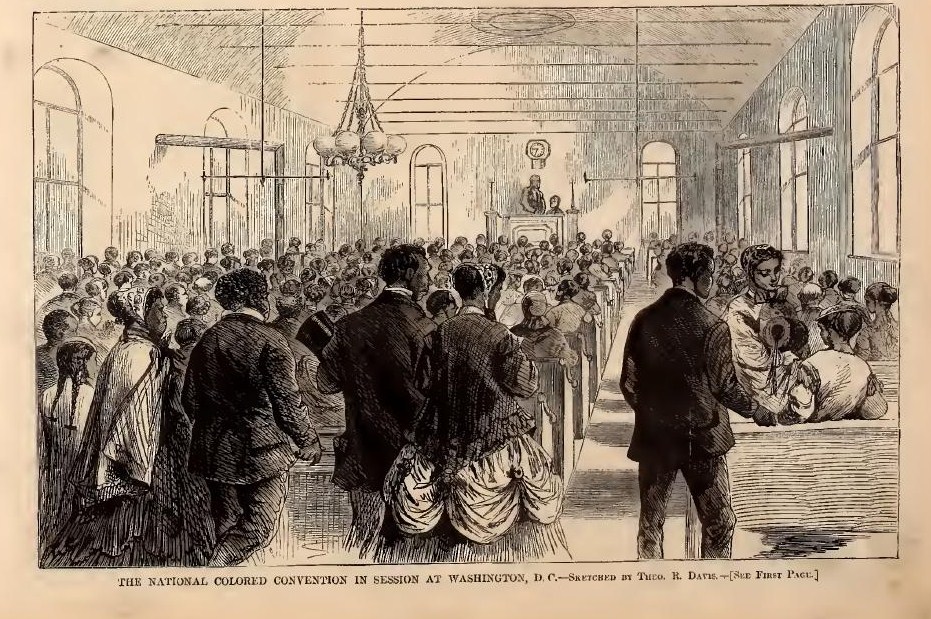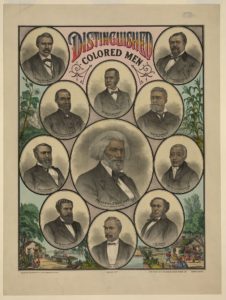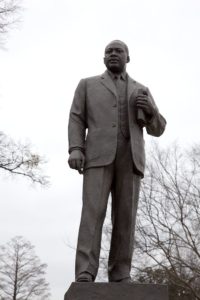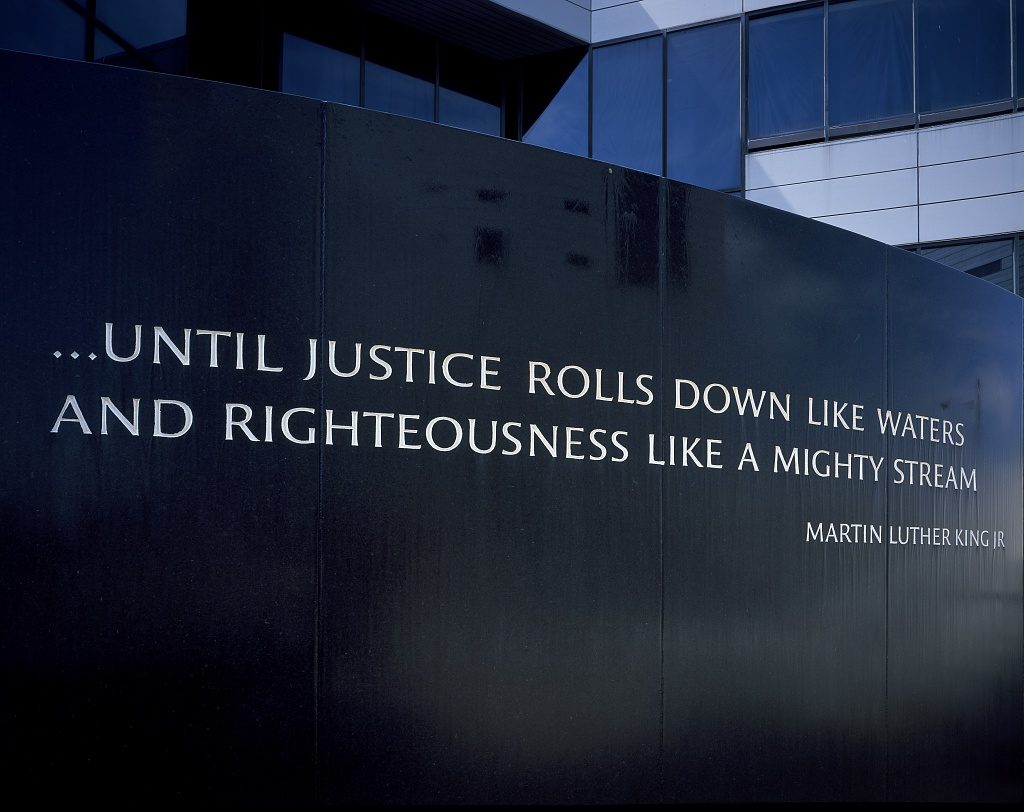In January 1869 a National Convention of the Colored Men of America was held in Washington, D.C. On January 19th a delegation from the Convention called on President-elect Ulysses S. Grant to congratulate him for the victory and to remind him that many black men were threatened and harassed and some even murdered as they endeavored to vote for General Grant’s Republican ticket. From the February 6, 1869 issue of Harper’s Weekly (at the Internet Archive):
THE COLORED CONVENTION.
The object of the National Convention of colored men, recently in session at Washington, was to inquire into the actual condition of the negro race in this country, and to consider the political and social problems which that race has to encounter as the result of emancipation. At the close of the Convention, on the morning of January 19, the Convention sent a committee of twelve, to call upon General GRANT. Mr. LANGSTON, the Chairman, addressed the General as follows:
General GRANT: – In the name of 4,000,000 of American citizens; in the name of 700,000 electors of African descent – electors who braved threats, who defied intimidation, whose numbers have been reduced by assassination and murder in their efforts in the exercise of a franchise guaranteed by American law to every one clothed in the full livery of American citizenship, to secure in the late Presidential canvass the election of the nominees of the National Republican party to the high places to which they were named, we, the accredited delegates of the National Convention of Colored Men, the sessions of which in this city have just closed, come to present to you our congratulations upon your election to the Presidency of the United States. Permit us, General, to express, in this connection, our confidence in your ability and determination to so execute the laws already enacted by our National Congress as to conserve and protect the life, the liberty, and the rights, no less of the humblest subject of the Government than those of the most exalted and influential. Called as you are to fill the Chair of State, your duties will be arduous and trying, and (especially since in this reconstruction period of the Government, removing the rubbish, the accretions of the now dead slaveholding oligarchy) you will administer the government according to the principles of morals and law announced by the fathers. In advance we bring you, General, as a pledge of our devotion to our common country and Government, the liveliest sympathy of the colored people of the nation, and in their name we express the hope that all things connected with the administration of the Government, upon which you are so soon to enter as our Chief Magistrate, may be, under Providence, so ordered for the maintenance of law and the conservation of freedom, that your name, written high on the scroll of honor and fame, may go down to posterity, glorious and immortal, associated with the names of your illustrious predecessors in the Great Chair of State – WASHINGTON and LINCOLN. Again, General, we express our congratulations.
To this address General GRANT replied:
I thank the Convention, of which you are the representative, for the confidence they have expressed, and I hope sincerely that the colored people of the Nation may receive every protection which the laws give to them. They shall have my efforts to secure such protection. They should prove by their acts, their advancement, prosperity, and obedience to the laws, worthy of all privileges the Government has bestowed upon them; and by their future conduct prove themselves deserving of all they now claim.
According to Colored Conventions this convention was one of many held nationally and by state from 1830 until the 1890s. The site makes available reports of the proceedings of many of these conventions, including this 1869 national meeting. Frederick Douglass was named president of the convention, although he had to leave Washington after the second day. There was a controversy over whether or not to admit as a delegate Miss H.C. Johnson of Alleghany city, Pennsylvania. One objection was that the meeting was explicitly a convention for colored men. Rev. J. Sella Martin hoped that the convention would throw aside all prejudices and not be tied down to any conventionalties and pointed out that in the Bible “men” meant men and women. Another view was that in a progressive age, women should also be given suffrage. Mr. I.C. Weir also supported the vote for women and stated that to prohibit women delegates “would be too much like the actions of the White House, who had excluded the colored race for two hundred years.” Eventually Miss Johnson was seated as a delegate.




